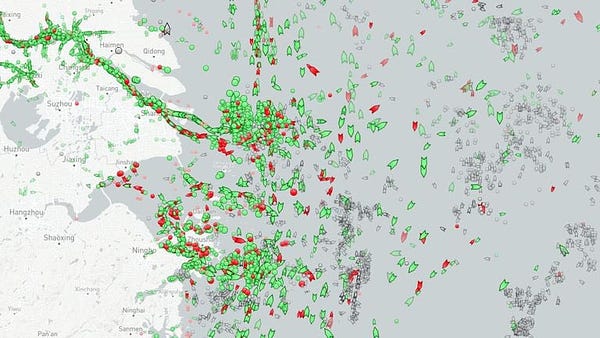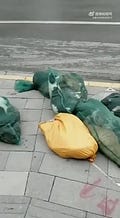In 1966 Mao Zedong decided he needed to reassert his control over the Chinese Communist Party and destroy his increasingly powerful enemies within the party apparatus. He chose the mechanism of the Cultural Revolution – unleashing students and the Red Guards to weed out counter-revolutionary elements. The resulting chaos crippled China but solidified Mao’s authority.
Almost sixty years later Xi Jinping has chosen to use a similar self-destructive methodology to crush his opponents. He has chosen COVID lockdowns.
During the Cultural Revolution gangs of students and Red Guards attacked anyone wearing bourgeois clothes, tore down “imperialist” signs, and terrorized intellectuals and party officials. All of this was done in the interest of weeding out anyone who opposed Mao’s authority. “It was a power struggle waged... behind the smokescreen of a fictitious mass movement,” Belgian scholar Pierre Ryckmans wrote in his damning account of the Cultural Revolution, The Chairman’s New Clothes.
Somewhere between half a million and two million people died. In some parts of China people were driven to cannibalism. The Cultural Revolution was a disaster for the Chinese people, but it cemented Mao’s control over the nation.
Shanghai is locked down. Residents of apartment buildings have been physically locked into their buildings. Footage coming out of China shows people screaming that they are starving.
Drones hover overhead telling people to go back inside their apartments. There have been reports of residents of the city storming and looting supermarkets to get food. Robot dogs patrol the empty streets warning everyone to stay inside. One video shows citizens opening their apartment window to sing as a form of protest, only to find themselves confronted by a hovering drone. “Control your desire for freedom,” it tells them.
People are jumping to their deaths from apartment buildings, driven mad by the lockdowns. Pets are being rounded up and killed out of fear they may spread COVID.




No end date has been announced for the lockdowns. Factories are closed. Ships wait offshore for goods that are not being produced or delivered. Global supply chains are in chaos.


It all appears quite mad. It is not. It is all very deliberate.
Xi Jinping has made himself ruler of China for life. He is, in effect, now an emperor. Like all emperors, he is focused on centralizing and consolidating his control. Profit is not his primary concern. It is power.
Shanghai is China’s largest urban center. Its residents have a history of free-thinking. Increasingly in recent years its leaders have gone their own way and become more and more intertwined with the wider world beyond China. Today, Shanghai’s residents are among the most educated, well-traveled, and wealthiest in China. Over the last two decades, the city has often experienced per capita income growth of almost 30% a year. With that money has come a feeling that Shanghai can go its own way.
Reforms instituted in China in 1978 granted a great deal of decision-making authority to regional governments. This kind of fiscal federalism was effective at promoting growth but it also gave regional governments a taste for independence. All this may have been good for the average Chinese person. It was not so good from the standpoint of a man looking to cement his control and crush his opponents.
An increasingly wealthy population interacting with the wider world is ultimately a prescription for disaster for a totalitarian regime. It means the possibility that someday people will start to think for themselves and refuse to take orders from the center. It means the possibility of revolution, and if there is one thing Communists are good at it is crushing revolutions. No matter what they say they have no intention of actually letting the people decide things for themselves.
Xi’s consolidation of his power is built around the concept of something called “Common Prosperity.” Officially this is branded as a drive for equity and an effort to weed out corruption. What it is in reality is an effort to weaken private businesses, fight foreign influence and centralize all power in Beijing under Xi’s direct control. Making money is no longer the most important thing in China. In fact, to the extent businesses are weakened, Xi gains.
The economy is entering dangerous territory. Hard times are ahead. The average Chinese citizen ultimately will suffer. That does not matter. Any policy which hurts Xi’s rivals will be continued irrespective of the ramifications for the Chinese economy. The impact on Chinese citizens is of no consequence. All that matters is that Xi’s power is increased.
In Shanghai, the people are suffering. The economy is tanking. All is going according to plan.
The people may be screaming. Xi is smiling.




Totalitarian Yin and Yang?
Xi suppresses and starves his own people (much like his predecessor Mao).
Xi distributes largesse to foreigners to compromise them and ensure their obedience (e.g, the Bidens, Eric Swalwell, various universities and media companies and, likely, Mitch McConnell).
Deprivation and Largesse. Both employed to consolidate power. Totalitarian Yin and Yang?